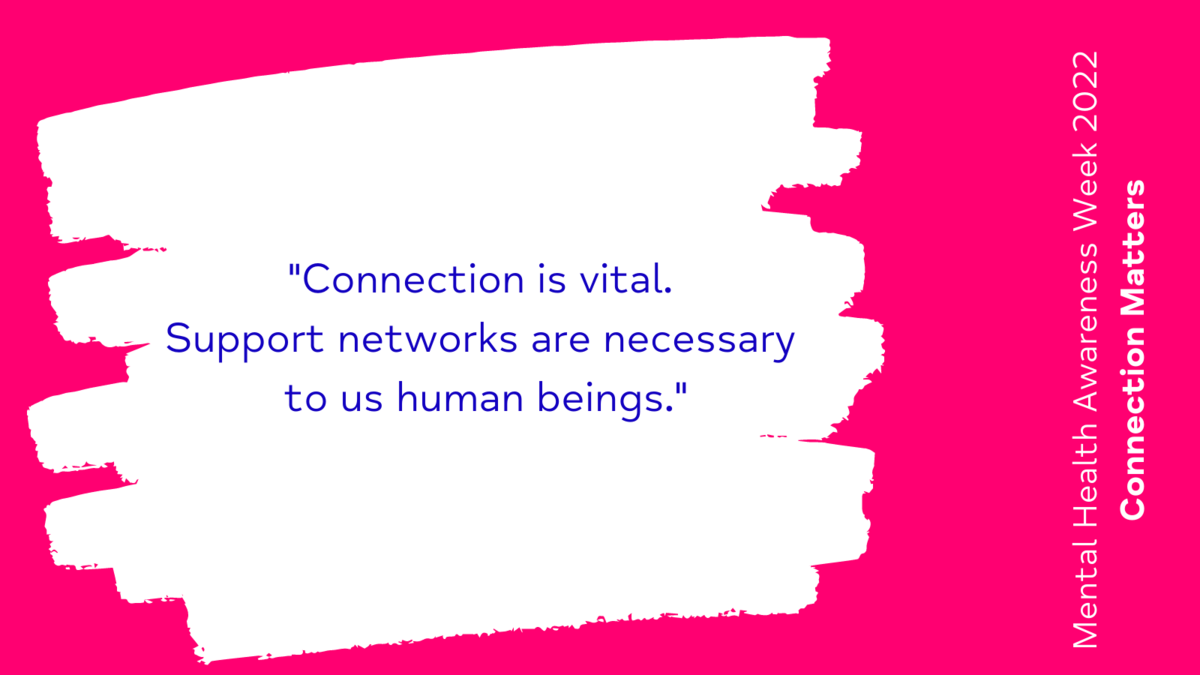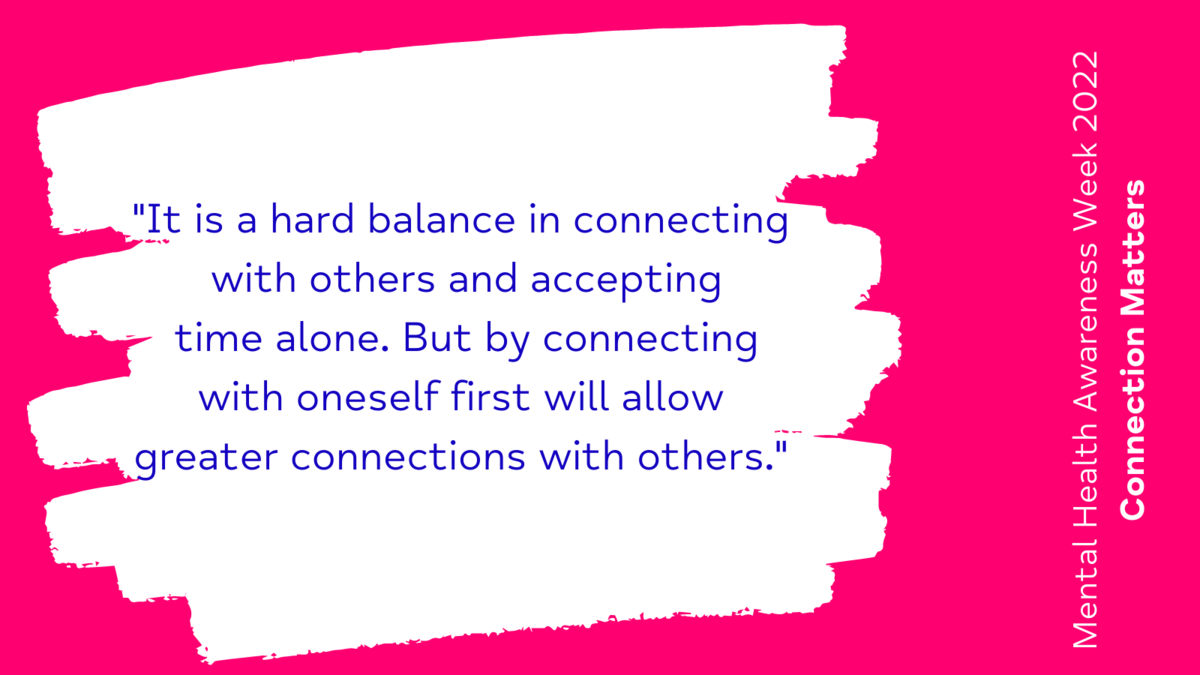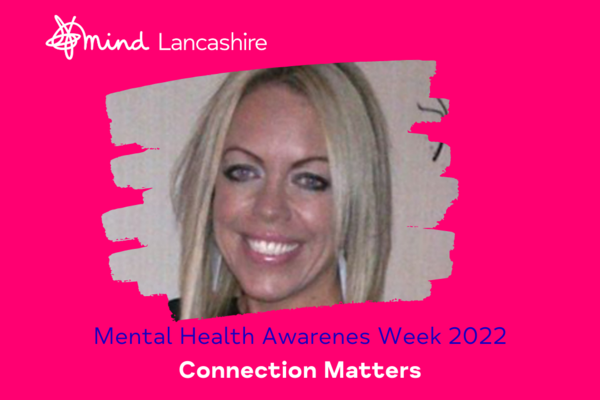The Feelings of Loneliness by Jo Howard Lancashire Mind Wellbeing Coach and Training Coordinator.
I hope this finds you well and taking care of yourself in whichever way you can. I have been thinking a lot recently about the feeling of loneliness and thought what better way to acknowledge it, than to talk about it. This feeling seems to sit under the radar for most people and yet can affect us at any given time – especially so, for the times we have experienced and still do post pandemic.
Unfortunately, society has faced an epidemic of loneliness for many years due to a number of factors such as lack of human connection and maybe an apprehension to reach out. Young people state they are less likely to reach out for help when feeling lonely, due to fear of being judged that they have no or not many friends, which would cause them more distress than the loneliness itself.
Raising awareness may help change the way we think about loneliness. Loneliness presents in many forms. For example, being alone does not necessarily mean you are lonely. We all like our own space and that is indeed healthy to ground ourselves and re-charge. I must admit, during the first lockdown of the pandemic, when all my family were home and there was no place to escape, there were pockets of times I sat in my car, just to gain a sense of self and sanity from feeling overwhelmed and the walls closing in on the house. Speaking to others I realised I wasn’t alone and noticed others were trying to find a space too. Acknowledging and normalising from others, instantly made me feel less lonely in my situation. This validated I needed time out, away from the chaos of what was happening in the world and from my internal world too which certainly helped me to re-connect again. However, for some, this space and time of being alone can feel very exposing, isolating, and lonely when experienced consistently, which can of course have a detrimental impact on our mental health.
Connection is vital. Support networks are necessary to us human beings. As a therapist I have seen first-hand times when a desperation to connect, to find someone that looks out for us and has our back, is a long-term activity for some people who have experienced difficult times in their lives – whether that connection be with healthy or not so healthy relationships, gangs, groups, whatever it takes to feel a part of something, a sense of belonging, an identity, a purpose; we will search it. We are social beings and hard wired to seek “a tribe” to communicate with and keep us feeling safe. This innate human trait has never disappeared. It’s designed to protect us, keep us alive, a sense that developed tens of thousands of years ago.
That said how many of us have been in a crowded room and felt lonely and unconnected?! Loneliness can also mean we do not feel understood, heard, noticed, recognised or even worse ignored. Some adults have experienced this at some time or another and if not managed can leave a lasting impact. For some children and young people “loneliness” has played a big factor on their mental health within a trauma experience.
Peter Fonagy - Psychoanalysis and Clinical Psychologist, states that “Adversity turns into trauma when the mind experiences itself as being in isolation. The tragedy is, of course, is that the very experience that caused the trauma, will destroy the networks needed to overcome it”.
How trauma impacts, is how “alone” an adult or child feels in the moment the trauma happens and in the aftermath. “Aloneness” is a significant risk factor of mental health injuries and trauma. For a child, what is more influential than the nature of the trauma and the timing of the trauma, is “the quality and quantity of rich, attuned, sensitive and protective relationships a child may have” Dr Bruce Perry – Psychiatrist
We can’t take that experience away from the child or indeed an adult who has suffered loneliness, but we can work on the aloneness of a person. So, here’s the good news, research has shown that having someone that is present, safe, predictable, doesn’t try to take away or solve problems, sees, hears, and notices them – is a buffer for the impact of further mental health injuries and will support new neural pathways to repair and restore, leading to resilience. Phew, I hear you say!

Being aware of ourselves and recognising what our minds and bodies are telling us is the biggest resource we have. We know there’s lots of research on the mental and physical impact to feeling lonely and yet we can help avoid this outcome a little bit, by doing a few simple things:
· Check in with yourself, how are you feeling?
· Reach out to family and friends.
· Check on someone else, a neighbour, a friend, take time to listen, hear his or her story.
· Connect with music, a film, a comedy, a book. A lyric, a quote or a story can sometimes articulate how you are thinking/feeling, when you think no one else feels that way and bring about a connection.
· Volunteer.
· Take up a hobby.
· Go for a walk and connect with nature.
· Write your thoughts in a journal, connect with yourself if you feel you cannot connect with others.
· Recognise that loneliness is a feeling and not a fact. Support your emotions and be kind to yourself.
· Be careful when comparing yourself to others. We all know that feeling of seeing pictures of others “having a great time”. This may not be true. Everyone has their own battles with loneliness.
· Take care of yourself. Small acts of self-care can lead to big investments of self-worth thus can support change.
· Remember we are social beings designed to connect, so it is ok not to feel ok when we feel lonely and disconnected. This time will pass, and we will connect again.
It is a hard balance in connecting with others and accepting time alone. But by connecting with oneself first will allow greater connections with others. Alone time does not have to be negative. Great things do indeed come from solitude. This can only improve our relationships with others – well this is what I told myself sat in my car in the lockdowns with a flask!
I quite like this little quote to help reframe time alone: “Solitude helps you find peace. Peace helps you find happiness”. Maxime Lagace.
Take care and warmest wishes, Jo

The below resources have all been working to combat loneliness and can provide help.

